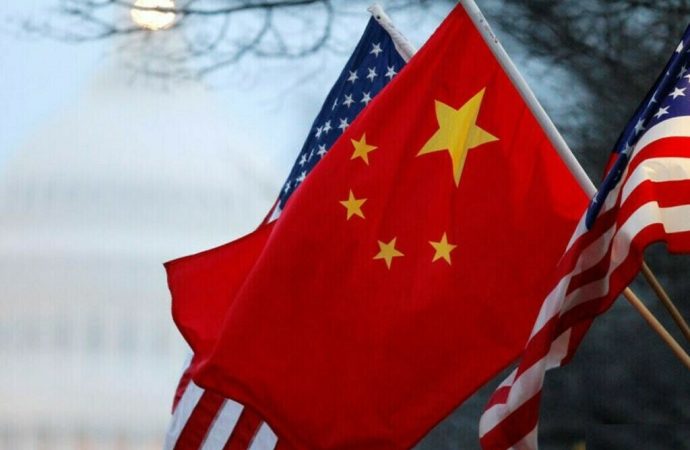The collapse of China Evergrande Group, one of the country’s largest property developers, has cast a long shadow Chinese over global financial markets. As one of the most significant corporate defaults in recent history, it has left a complex web of debt and unpaid obligations that ensnare not just domestic creditors but also international investors.
The collapse of China Evergrande Group, one of the country’s largest property developers, has cast a long shadow Chinese over global financial markets. As one of the most significant corporate defaults in recent history, it has left a complex web of debt and unpaid obligations that ensnare not just domestic creditors but also international investors. This article delves into the intricacies of the Evergrande crisis, its impact on foreign investors, and the broader implications for global financial stability.
Overview of Evergrande’s Crisis

This image is taken from google.com
China Evergrande Group, founded in 1996, grew rapidly to become one of China’s largest real estate developers. By 2021, the company had amassed over $300 billion in liabilities, driven by aggressive borrowing to fund its expansive property development projects. However, a combination of regulatory crackdowns, market slowdowns, and mismanagement led to a severe liquidity crisis.
In September 2021, Evergrande defaulted on its debt, sparking fears of a broader financial contagion. The company’s debts included both onshore and offshore liabilities, affecting a wide range of creditors. This financial debacle has particularly hit foreign investors hard, as they find themselves entangled in Evergrande’s debt-laden network with little clarity on recovery prospects.
Impact on Foreign Investors
Financial Losses
Foreign investors in Evergrande have faced substantial financial losses. These investors include international bondholders, equity investors, and banks with exposure to Evergrande’s debt. As Evergrande’s debt restructuring progresses slowly, foreign creditors are left grappling with the uncertainty of recovery rates and the timeline for potential repayments.
Legal and Regulatory Challenges
Foreign investors are also confronting legal and regulatory hurdles. The legal framework governing insolvency and bankruptcy in China differs significantly from international norms, creating complexities for foreign creditors seeking to recover their investments. The lack of transparency and consistency in the legal process has further exacerbated the situation, leaving investors stranded and frustrated.
Reputational Damage
The Evergrande crisis has also impacted the reputations of the foreign investors involved. Being associated with such a high-profile default can affect their standing in the financial community, potentially influencing future investment opportunities and relationships with other Chinese entities.
Comparative Analysis of Investment Recovery Scenarios
Analysis Table: Recovery Scenarios for Foreign Investors
| Scenario | Potential Recovery Rate | Key Factors | Challenges |
|---|---|---|---|
| Full Debt Repayment | 100% | Robust restructuring plan, favorable legal outcomes | Long timeline, potential political interference |
| Partial Debt Repayment | 30% – 60% | Partial restructuring agreement, asset liquidation | Legal and regulatory barriers, asset value fluctuation |
| Debt-to-Equity Swap | Variable | Conversion of debt to equity in Evergrande’s assets | Potential dilution of shares, uncertain asset values |
| No Recovery | 0% | Complete default, no viable restructuring plan | Total loss of investment, legal recourse challenges |
Comparative Table: Foreign Investor Exposure vs. Recovery Potential
| Investor Type | Exposure | Recovery Potential | Factors Influencing Recovery | Strategic Responses |
|---|---|---|---|---|
| International Bondholders | High | Low to Medium | Debt restructuring terms, bond type (secured vs. unsecured) | Diversification, legal action |
| Foreign Equity Investors | Moderate | Low | Share dilution, market conditions, restructuring outcomes | Exit strategies, renegotiation |
| Global Banks | Significant | Medium | Loan terms, collateral, involvement in restructuring | Risk management, loan restructuring |
| Institutional Investors (e.g., Funds) | High | Variable | Fund size, investment strategy, negotiation power | Rebalancing portfolios, strategic partnerships |
Implications for Global Financial Markets
Increased Risk Perception
The Evergrande crisis has heightened perceptions of risk in the Chinese real estate sector and beyond. Investors are now more cautious about lending to Chinese companies, particularly in the property sector. This has led to tighter credit conditions and a reevaluation of risk management practices across global markets.
Impact on Chinese Economic Policy
The Chinese government’s response to the Evergrande crisis will have significant implications for its economic policy. The situation has prompted a review of regulatory frameworks governing corporate debt and financial stability. Future policies may focus on improving transparency, enhancing legal protections for creditors, and balancing economic growth with financial stability.
Global Financial Contagion
The Evergrande debacle serves as a warning of potential financial contagion. The interconnectedness of global financial markets means that significant corporate defaults can have ripple effects worldwide. Investors and regulators must remain vigilant to prevent similar crises from escalating into broader financial turmoil.
Conclusion
The foreign investors stranded in Evergrande’s web of debt face a challenging and Chinese uncertain future. The complex interplay of financial losses, legal obstacles, and reputational damage underscores the need for a comprehensive approach to debt restructuring and recovery. As the global financial community navigates the aftermath of this crisis, lessons learned from Evergrande’s collapse will be crucial in shaping future investment strategies and regulatory frameworks.
The Evergrande crisis highlights the intricacies of international investment and the far-reaching consequences of corporate defaults. Moving forward, both foreign investors and regulators must adapt to mitigate risks and safeguard financial stability in an increasingly interconnected world
















